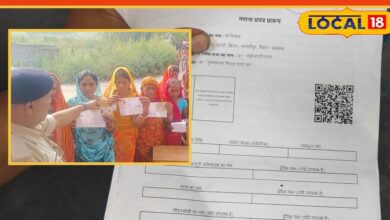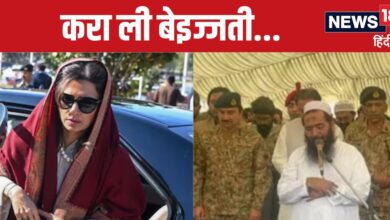Referring to the 1973 Keshavanand Bharti case in his note, Chandrachud said that Parliament cannot amend the basic structure of the Constitution- democracy, federalism and independent and fair elections. However, he insisted that the idea of holding elections simultaneously does not violate these principles. The opposition describes one country, one election against democracy and federalism. Opposing this, Chandrachud wrote that it was never mandatory in the constitution that elections should be held in national and states at different times. It is against the principle of universal adult suffrage.
Questions raised on ECI’s power
His main concern is associated with Article 82A (3) of the Bill, which gives ECI to hold elections simultaneously as well as wide powers to amend Part XV of the Constitution. Chandrachud, describing it as high, warned that this provision may allow ECI to reduce the tenure of state assemblies more than five years or. He said that if he considers the election simultaneously as impractical with the Lok Sabha, he can do so. He suggested that the bill should have clear procedural guidelines and ECI should only be limited, essential powers.
Former CJI Ranjan Gogoi also expressed equal concern on this issue in front of the committee in March. Chandrachud raised another important issue that simultaneous elections can give benefits to large national parties based on financial resources on regional or small parties. Citing the Representative Janata Act, 1951 and Election Operation Rules, 1961, the expenditure limit is set for the candidates, but there is no restriction on the expenses of political parties. This can cause undue benefit to the money-force parties. He advocated to tighten the election campaign funding rules so that all parties would get equal opportunities.
Other former CJI also raised questions
Apart from this, Chandrachud also questioned the provision to limit the tenure of the assemblies elected after the mid -term elections to the remaining time of five years. He argued that if a government is elected for a year or less, it will not be able to take effective policy decisions due to the code of conduct, as it comes into force six months before the next election. Many members of JPC have also raised this issue.
Former CJI UU Lalit suggested in February that the election should be implemented in a phased manner, as suddenly the tenure of the assemblies can create legal challenges. Chandrachud and former CJI JS Khehar will personally express their opinion in front of JPC on July 11, which is expected to get more clarity on the future of the bill. A country, an election proposal has the ability to bring revolutionary changes in India’s electoral structure, but it also raises questions of constitutional balance and fairness.






